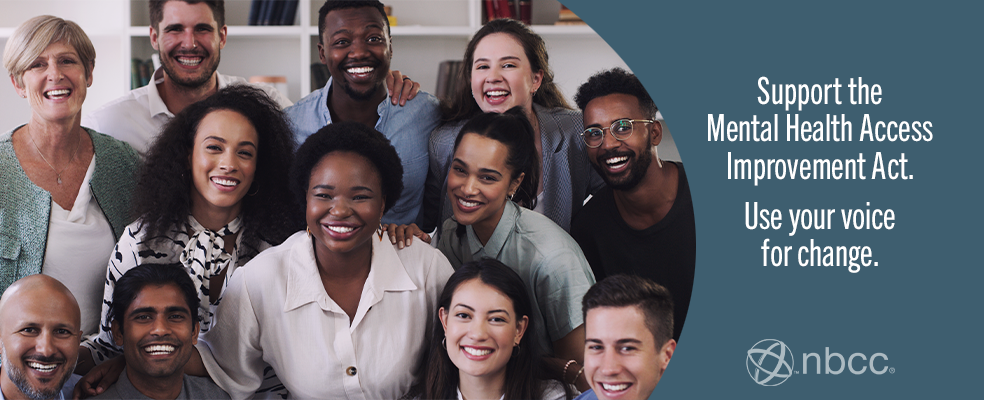
NBCC, along with the Medicare Mental Health Workforce Coalition, counselors, and marriage and family therapists from across the country, participated in the Virtual Action Day on Sept. 14. There is still time for counselors to reach out and advocate for the Mental Health Access Improvement Act (H.R. 432/S. 828). Members of Congress need to hear from practitioners about the importance of access to mental health services for Medicare beneficiaries and to encourage their support.
As the baby boomer population ages, there are more than 200,000 marriage and family therapists (MFTs) and licensed mental health counselors (MHCs) across the country who are specifically trained to address mental health and substance abuse, including opioid addiction.
COVID-19 has only exacerbated the mental health crisis among Medicare beneficiaries. Social isolation, depression, and anxiety are skyrocketing among older people during these unprecedented times. According to a study from the Journal of the American Medical Association, the incidence of serious psychological distress in adults over 55 during the beginning of 2020 had doubled from 2019 levels.
Members of Congress can help seniors and beneficiaries of Medicare gain access to mental health services by supporting the Mental Health Access Improvement Act (S. 828/H.R. 432).
You can be a part of that change by contacting your representatives and encouraging their support. Together, let’s show Congress that #MedicareMentalHealth and #SeniorsMentalHealth matter!
Ready to engage in advocacy? Remember these points:
- Surveys show that millions of Medicare beneficiaries have seen a significant increase in anxiety, depressive, and substance use disorders during the COVID-19 pandemic.
- The Mental Health Access Improvement Act (S. 828/H.R. 432) would expand the availability of cost-effective providers under Medicare to help provide mental health services and address the opioid epidemic.
- There is a shortage of mental health and substance abuse providers in the Medicare system to help older adults at risk.
- There is an abundance of licensed MHCs and MFTs across the country who are specially trained to address mental health and substance abuse, including opioid addiction. These professionals need to have the ability to provide services to seniors on Medicare.
Visit the NBCC Action Center to send messages to your representatives.